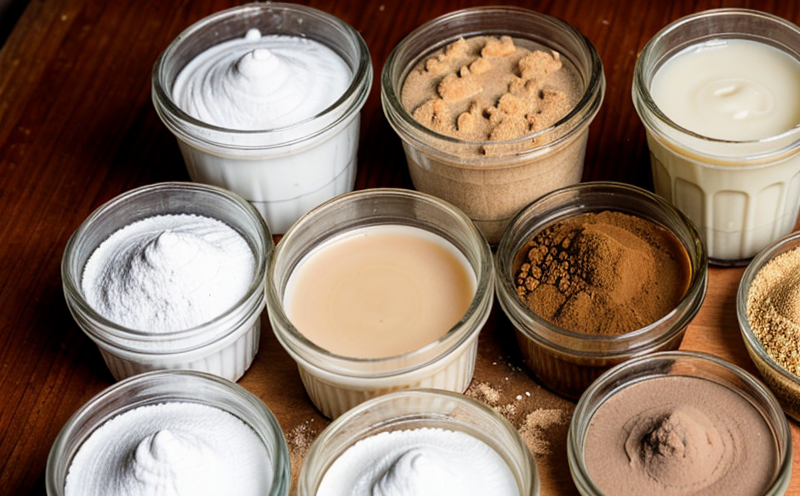ASTM E3011 Yeast and Mold Testing in Environmental Monitoring
The ASTM E3011 standard provides a robust framework for conducting yeast and mold testing within environmental monitoring. This service is critical for ensuring the safety and quality of food, feed, and other products that can be affected by these microorganisms.
Yeast and mold are ubiquitous in nature and play significant roles in various biological processes. However, under certain conditions, they can become problematic, leading to spoilage or contamination. In food and feed industries, such issues can result in product recalls, damage to reputation, and potential health risks for consumers.
The ASTM E3011 procedure focuses on the detection of mold and yeast spores that may be present in air samples collected from various environments relevant to these sectors. This testing is essential for compliance with international standards such as ISO 28945, which governs the sampling and analysis techniques used in environmental hygiene.
The service begins with the collection of air samples using specialized samplers designed to capture microorganisms efficiently without affecting their viability. Once collected, these samples are transported to our laboratory for further processing. Here, they undergo rigorous examination using advanced microbiological methods tailored to detect both mold and yeast spores.
Our testing process adheres strictly to ASTM E3011 guidelines, ensuring accurate and reliable results. This includes the use of appropriate media and incubation conditions that promote optimal growth of the targeted microorganisms while minimizing interference from other contaminants. The final step involves the identification of isolated colonies based on morphological characteristics and biochemical tests.
The data generated from this testing is highly valuable for several reasons. It allows companies to assess potential sources of contamination in their facilities, which can help them implement preventive measures aimed at maintaining a hygienic environment. For research and development teams, the results provide insights into the efficacy of new product formulations or process changes designed to enhance safety.
Compliance officers benefit greatly from this service as it helps ensure adherence to regulatory requirements set forth by bodies like FDA (Food and Drug Administration) and EU legislation concerning food safety. By providing clear evidence regarding levels of mold and yeast spores in sampled areas, ASTM E3011 testing supports decision-making processes related to quality assurance programs.
For procurement departments involved in sourcing raw materials or ingredients from multiple suppliers worldwide, consistent application of this standard across different locations ensures comparability of data. This consistency is crucial when evaluating supplier performance and identifying trends that could indicate broader issues within supply chains.
Industry Applications
- Food processing plants
- Pharmaceutical manufacturing facilities
- Agricultural operations
- Logistics warehouses storing perishable goods
| Sample Type | Sampling Method | Analytical Techniques Used |
|---|---|---|
| Air samples | Volumetric sampling techniques | Microscopy, biochemical tests |
| Surface swabs | Swabbing followed by dilution and plating | Biochemical identification methods |
Customer Impact and Satisfaction
Our clients report increased confidence in the safety of their products due to our stringent adherence to ASTM E3011 standards. This translates into improved brand reputation, enhanced customer trust, and reduced risk of product recalls.
By leveraging our expertise in yeast and mold testing, companies can proactively address hygiene concerns before they escalate into larger issues. Our comprehensive reports not only meet regulatory expectations but also offer actionable insights that drive continuous improvement initiatives within organizations.
We pride ourselves on delivering consistent, high-quality results every time. This commitment has earned us a reputation for excellence among our clients who rely on us to provide accurate data and expert advice throughout their quality management processes.
Use Cases and Application Examples
Case Study 1: A leading food manufacturer implemented ASTM E3011 testing as part of its facility-wide hygiene program. After identifying high levels of mold spores in one production line, the company took swift action to clean and disinfect the area, resulting in a significant drop in subsequent test results.
Case Study 2: A pharmaceutical firm utilized this service during the validation phase of its new drug formulation. The findings helped refine storage conditions for active ingredients, ensuring optimal stability during long-term trials.





